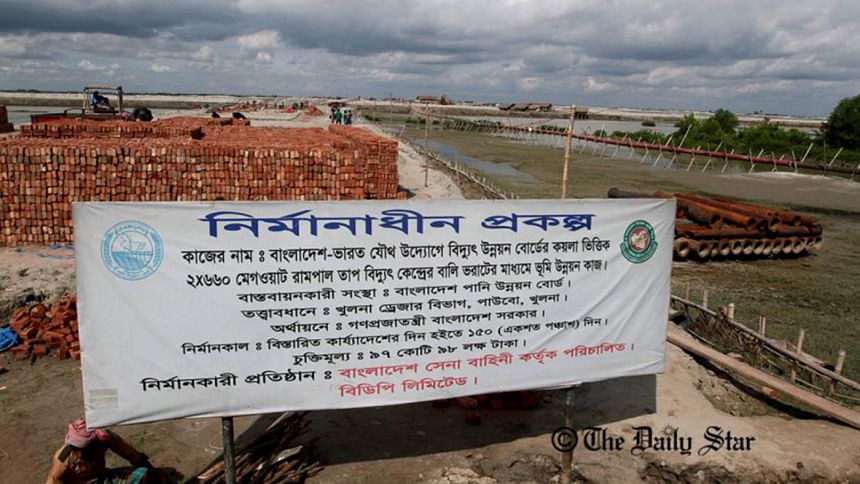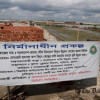Environmentalists slam Rampal power plant near Sundarbans

More than 70 environmental groups have warned the construction of power plants near the Sundarbans in Bangladesh, a mangrove forest that is home to the Bengal tiger, would damage the environment and affect the livelihoods of millions.
The coal-fired 1,320-megawatt Rampal power plant will be built on the edge of the Sundarbans forest, a UNESCO World Heritage site. A smaller plant is planned a short distance away.
"There is no doubt that the proposed Rampal and Orion power plants will have serious and irreversible impact on the ecology of the Sundarbans," the groups from countries including Sweden, South Africa and Japan said in an open letter to the World Heritage Committee dated April 20.
"The planned coal power plants threaten the health and livelihoods of millions of people."
The salt-tolerant mangrove forests of tidal waterways, mudflats and small islands is known for its wide variety of bird and animal species.
The Rampal plant will directly impact the livelihoods of about half a million people - including fishermen, farmers and forest dwellers - and make millions more vulnerable to natural disasters, according to lobby group the National Committee to Protect Oil, Gas, Mineral Resources, Power and Ports.
Dhaka plans to set up 25 coal-fired power plants by 2022 in order to meet rising electricity demand.
The government has indicated it is unlikely to abandon its push to build more coal-fired power plants, despite growing opposition from local people and environmentalists.
Some of these protests have turned violent.
Earlier this year, one person was killed and about a dozen injured in a protest against a $2.4-billion Chinese-backed coal-fired plant southeast of the capital Dhaka.
Last year, at least four people died when police opened fire at protesters against the plant.
Bangladesh Prime Minister Sheikh Hasina, responding to criticism from former US Vice President Al Gore at the World Economic Forum this year, said Bangladesh desperately needs more power, and that the planned coal plants are far from the Sundarbans.
Clashes between villagers and governments keen to build infrastructure to spur growth are likely to become more common in South Asia as demand for scarce land rises, analysts say.
Environmentalists say the risks that fossil fuel plants pose to nature and the livelihoods of people are not being assessed.
"Women are particularly at risk, as displacement is linked to increases in gender violence, including falling victim to trafficking and prostitution," the non-profit groups said in their letter.

 For all latest news, follow The Daily Star's Google News channel.
For all latest news, follow The Daily Star's Google News channel. 







Comments